Is Your Reliance on Personal Guarantees Quietly Destroying Your Portfolio?
A conversation with Mike Mondelli, CEO of Verdata, on why the future of SMB lending depends on solving problems most lenders don't even know they have.
If you're an alternative business lender still making credit decisions based primarily on personal guarantor credit scores, this episode might make you uncomfortable. That's exactly why you need to listen to it.
Mike Mondelli doesn't mince words: Using a business owner's personal credit score as your primary underwriting tool is "one of the worst risk decisions you can make as a lender."
Coming from anyone else, you might dismiss this as provocative positioning. But Mike isn't a thought leader with a hot take—he's a data infrastructure veteran who built L2C (sold to TransUnion in 2014), led TransUnion's global alternative data strategy for nearly six years, and is now CEO of Verdata, a platform aggregating alternative data on approximately 20 million U.S. businesses. When someone who's spent two decades solving the thin-file problem in both consumer and commercial lending tells you the industry is fundamentally underwriting the wrong variables, you listen.
The Core Argument: You're Optimizing for the Wrong Thing
Here's Mike's central thesis, and it should make every underwriting team pause:
Personal credit scores simultaneously underestimate your risk and cause you to miss growth opportunities.
Think about it: If a business owner has a 680 personal credit score versus a 780, are you really making materially different lending decisions? Probably not. Both clear your minimum threshold. But here's what you're missing: that business owner's company could be absolutely tanking—bleeding cash, losing customers, on the verge of collapse—and you won't see it in their personal credit report until it's too late. Their personal FICO is a lagging indicator of business distress.
Conversely, that same business could be scaling like crazy—doubling revenue quarter over quarter, crushing it on Amazon or Shopify, swimming in positive cash flow—and you're still capping them at conservative limits based on their personal 680 score. You're systematically under-lending to your best opportunities and over-exposing yourself to deteriorating businesses you can't see until the damage is done.
Mike's assessment? "It underrepresents the risk and it underrepresents the opportunity."
The Thin-File SMB Market: Your Actual Addressable Market
This isn't just theory. Let's talk about your actual market.
According to Mike, the businesses Verdata focuses on—those doing less than $10 million in revenue—represent approximately 90% of U.S. businesses. These aren't enterprises with robust financial reporting, multiple banking relationships, and deep credit histories. They're Main Street businesses—the pizza shop, the HVAC contractor, the e-commerce seller grinding it out on Amazon.
And here's the reality: 99.9% of all U.S. businesses qualify as small businesses (under 500 employees), and the vast majority operate with modest revenues. In fact, 34% of small businesses have revenue under $50,000, and only 9% exceed $1 million annually. For context, businesses with no employees average just $47,794 in annual revenue, while those with 1-4 employees average $387,000.
These are exactly the businesses you're lending to with those $25K to $500K deals. And here's the problem: they're the commercial equivalent of thin-file consumers. They barely exist at the commercial credit bureaus. What data does exist is fragmented, outdated, and incomplete. You're trying to make six-figure credit decisions with one hand tied behind your back.
Mike's answer? Build the infrastructure to aggregate what actually matters.
Alternative Data Infrastructure: Beyond Bank Statements
If you're ahead of the curve, you're already pulling bank statements through Plaid and running basic cash flow analysis. Good start. But that's table stakes now. The lenders who will dominate the next five years are building pipelines to verified alternative data sources that paint the full picture:
- Bank account performance (cash flow, transaction patterns, account history via platforms like Plaid)
- E-commerce platform data (Shopify sales, Amazon merchant performance)
- Payment processor volume (real-time transaction data showing business velocity)
- Consortium data (verified performance information shared among non-competing lenders)
- Social proof signals (Google Reviews, BBB ratings, Yelp feedback)
- Accounting platform integration (QuickBooks, Xero data with business owner permission)
According to Mike, Verdata is aggregating all of this across approximately 20 million businesses and creating credit scores from it. But here's the crucial part: they're not just scoring businesses. They're building the infrastructure that lets SMBs contribute their own verified data to tell their full story.
Why does this matter? Because a business owner running a successful e-commerce operation wants you to see their Shopify numbers. A contractor with consistent cash flow wants you to see their verified bank statements. They want to share this data if they understand the benefit—better terms, higher limits, faster approvals.
The Matching Problem: Your Hidden Underwriting Leak
Here's a technical challenge that's costing you deals and exposing you to risk, even if you're not tracking it:
Commercial identity resolution is a nightmare.
Unlike consumer lending where Social Security numbers create clean matching on both sides of the transaction, commercial lending is chaos:
- A business might have a legal entity name ("Joe's Pizza LLC") that's completely different from its DBA ("Joe's Authentic NY Pizza")
- Secretary of State filings use the legal name; Google Reviews use the DBA
- The mailing address (often the owner's home) is different from the physical business location
- The EIN isn't consistently used across data sources
- Multi-business entrepreneurs show up under different entities without clear connections
Every alternative lender has lived this frustration: You've got bank statements for one name, the application shows another name, and you're manually trying to verify it's actually the same business. You're losing good deals because you can't confidently match the data. You're approving bad deals because you missed connections that would've revealed problems.
Mike reveals that his team is on their eighth generation matching algorithm at Verdata. Eighth. This isn't a problem you solve once—it's continuous refinement using increasingly sophisticated techniques, including AI for edge cases where manual review is impractical.
If you're not investing in solving the matching problem, you're either turning away good business or unknowingly taking bad risk. Probably both.
What's Already Happening (While You're Debating Personal Guarantees)
Mike drops a crucial data point: Companies like Paraffin are already writing loans to Amazon merchants without personal guarantees, using marketplace data alone.
Read that again. No personal guarantee. Just verified Amazon seller performance data driving the credit decision. And according to Mike, it's working.
This isn't theoretical. It's not "maybe someday." It's happening right now in your market. If you're still requiring personal guarantees for every SMB loan, you're selecting for borrowers who can't qualify with the more progressive lenders. You're getting adverse selection and calling it risk management.
The Regulatory Reality: Consumer-Level Scrutiny is Coming
One more uncomfortable truth from Mike: Small business owners are "one step away from consumers" in regulatory thinking.
Commercial lending has historically been lighter touch than consumer lending from a regulatory standpoint. That era is ending. Mike's running Verdata with consumer-grade data governance—privacy controls, prohibited basis monitoring, audit-ready documentation—because he sees where this is headed.
If you're treating alternative data governance as an afterthought, you're building technical debt that will bite you when (not if) commercial lending regulation catches up to consumer standards. Build the controls now while you have breathing room, or scramble to retrofit them later under regulatory pressure.
Why This Episode Matters to You
This conversation isn't about bleeding-edge innovation happening in some distant future. It's about infrastructure and capabilities that are already differentiating winners from losers in SMB lending:
You'll learn:
- Why Mike believes personal credit scores give lenders a false sense of security (and how to think about guarantees differently)
- Which alternative data sources provide the highest signal for business performance according to Verdata's work with 20 million businesses
- The technical matching challenges you need to solve to leverage alternative data effectively
- How AI can help with data matching and summarization (and where Mike warns it shouldn't be used in scoring)
- What consumer-to-commercial data infrastructure evolution teaches us about the current SMB opportunity
- Specific examples of lenders already operating without personal guarantees (and how they're doing it)
Most importantly, you'll understand the competitive dynamics at play. The lenders building alternative data infrastructure now will capture disproportionate market share in the massive thin-file SMB segment. Those who don't will find themselves with adverse selection, fighting for scraps.
Listen if you're ready to challenge your assumptions about commercial underwriting.
Whether you agree with Mike's take on personal guarantees or think he's dead wrong, this conversation will sharpen your thinking about what actually drives performance in SMB lending. And in a market where data infrastructure is becoming the primary competitive differentiator, you can't afford to stay comfortable with outdated assumptions.
Given that 82% of business failures cite cash flow problems as a contributing factor, Mike's emphasis on real-time cash flow data over backward-looking personal credit scores deserves serious consideration from every lender in this space.
About Mike Mondelli:
Mike is CEO of Verdata, a commercial alternative data platform aggregating information on ~20 million U.S. businesses. He founded L2C (acquired by TransUnion, 2014) and led TransUnion's global alternative data strategy for nearly 6 years across US, Brazil, India, South Africa, and UK markets.https://verdata.com/https://www.linkedin.com/in/mikemondelli/
Podcast Transcript: Jordan Hansen interviewing Mike Mondelli (CEO, Verdata)
Jordan Hansen: Hello everyone, and welcome. I'm here with Mike Mondelli from Verdata. He's the CEO of Verdata, and we've been working together for years now, but I'm really excited to have him on the podcast today and learn more about what they're doing. Mike, but if you could just give us a little background on yourself and kind of what got you to where you are today.
Mike Mondelli: Yeah, sure. So in 2000, I hate dating myself, but in 2000 I started a company called L2C, which was established to help consumers with thin or non-existing credit profiles get scored. Because they just generally didn't exist at the credit bureau, and the scores couldn't be calculated on those records. And so what we did is we aggregated a lot of data that was not at the credit bureau. Things like bank account performance, payment, other types of subscription payments or cell phone payments, utility payments, those types of things, and incorporated those into credit profiles and scores for consumers. Then we sold that information via partnership with TransUnion to lenders to help them onboard consumers safely that didn't have full credit files at the credit bureau. We sold that business to TransUnion in 2014, and when I was at TransUnion, I had the opportunity then to lead their alternative data business and then their global data strategy team, and I recognize that we could do a lot of the same things in the commercial space that we'd done in the consumer space. And what I mean by that is there were a lot of different types of really predictive data available for small businesses. Unfortunately, they were scattered about and in a lot of cases they were not available for a small business to leverage on their behalf to be considered for credit by a lender. And so we set up Verdata to do just that, to create a platform that could take in the basics of a commercial business credit profile. Things like Secretary of State registrations, does the business, is the business who they claim to be. Are the principles that claim to be associated with the business, are they truly the principles associated with that business? We have that kind of information, as you know. And then we have things like bankruptcies, liens and judgements. Things like what are customers saying about this business from a social media standpoint. Things like Google Reviews and BBB and Yelp and all those things. And then we actually set up a consortium where lenders that worked with these small businesses furnish their performance information directly to us and tell us, Hey, did they have a good experience or a bad experience with this business? So we take in all that data on about 20 million US businesses now, and we aggregate it and create a credit score out of it. And then we're actually beginning to communicate with the SMBs to tell them what we know about them and give them the opportunity to add data to our ecosystem through verified channels like Plaid or link their bank account via Plaid or through Shopify and places like that where you can actually provide greater insight as a small business owner on how your business is doing, how long they've been, what your activity looks like. And so our goal is really to create that platform that unlocks all these unique data sources to, for the benefit of well intention and well-managed small businesses to help our clients who are generally lenders or financial services companies have greater confidence and transparency in the small businesses that they're doing business with.
Jordan Hansen: Oh, you went through a lot of awesome stuff, and I always have a lot of questions. I'm gonna start early at the beginning from what we were talking about, you started with consumer and kind of, you kind of were doing then what you're kind of thinking you can do now and obviously different data sources. But it's the same idea, right?
Mike Mondelli: Very similar. Yeah. Yeah. I mean, my whole concept is that the credit system is basically tethered in a liability view. Meaning, if you think about a consumer credit bureau, it's essentially the liability side of a balance sheet. What do you owe on your house? What do you owe on your car? What do you owe on your credit cards? It doesn't tell you anything about the cash flow side of it. What is your job? What is your income? What other bills do you pay? And it's simply because, you know, they just don't have access to that data and it's a very structured environment. You've got three big bureaus. They basically are all normalized and standardized on the same format, and so they can't take a lot of unique data in. Now, I will say Experian did some interesting things with Boost if you saw the Experian boost, they enabled consumers to add things like cell phone bills and rent payments, which I think was pretty successful. And so that concept to me applies in the small business realm as well. The businesses that we're focused on, you know, 90% of the businesses in the US do less than $10 million in revenue. To me, those are the same as thin file consumers, right? They're essentially the thin file, long tail of the small business world. And there are tremendous data sets out there that talk about what do they process in credit card transaction volume, you know, how many sales do they have on a platform like Amazon or Shopify? How much money's coming in or out of the company via accounting platforms. What's their bank account statements be, places like Plaid. So there's a lot of really verifiable data out there. It's just you have to be able to harness that demand from those small businesses for that data and then be able to aggregate it, ingest it, and then attribute it so that you can deliver it as a product to a lender who can actually use it to make a decision.
Jordan Hansen: Okay. I love this. It's funny, I never have really thought about the credit score like that, but you're absolutely right. It is certainly just one sided and it's kind of the defacto, especially for consumers, like that's the backbone of most lending. You have a bad credit score, it probably is gonna take you with most loans, so.
Mike Mondelli: Yeah. Yeah, absolutely. I mean, I think you're seeing tremendous progress around cash flow analytics on the consumer side these days. I think that small businesses have even more to gain from that.
Jordan Hansen: No, and I would say, you know, an alternative finance space, which is a big part of our customers, they, you know, bank statements is like number one, right? They'll look at that before they'll look at credit score because they want exactly what you're saying. They wanna see cash flow, you have the ability to pay. That's probably more important than maybe credit score. So, yeah. You again, taking us back, you were working heavily with consumers. You sold the TransUnion in 2014 you said?
Mike Mondelli: Correct.
Jordan Hansen: Yeah. And then you worked with TransUnion for what, four or five years did you say?
Mike Mondelli: Basically almost six years. I left at the end of 20.
Jordan Hansen: Okay. That's a big change from being the guy, right?
Mike Mondelli: Yeah.
Jordan Hansen: They're coming over to TransUnion and staying, you know, a lot of times when people sell their companies, especially to a large company like TransUnion, it's earnout, right? Let's get our earnout and go. What made you make the decision to say, I wanna stay here longer?
Mike Mondelli: Well, I'd worked with the people at TransUnion, so I knew who we were selling to, so I really liked the folks there. First of all, second of all, they were on a big push to, they were on a big alternative data push, and so they really prioritized the value of alternative data and let me take a leadership role in that effort. And so that kept me engaged and then really we looked at what we'd done in the US and said, why aren't we doing this around the world? And so we created a global role. And so that whole global aspect of it was pretty awesome for me just to learn about the data environments in different countries like Brazil and Asia and South Africa and the UK and Columbia. That was fascinating. So that kept me engaged. I would say I might not have left if it weren't for COVID. COVID really changed, you know, all that.
Jordan Hansen: Were you in the office like when—
Mike Mondelli: I was until we couldn't be.
Jordan Hansen: Yeah. Atlanta, so I mean they, Atlanta into the—
Mike Mondelli: Yeah, I was in Atlanta, TransUnion's in Chicago, so I would go there frequently, but actually I was in the offices around the globe, so visiting my teams in like Brazil or my team in Columbia. And so that was super fun just trying to learn their environments and learn what their laws were that were different than our data laws. And so that kept me really engaged for a while. So that was fun.
Jordan Hansen: They were kind of pushing your, what your goal was. Right. It sounds like when they purchased you, when you joined them, it's kinda like that's what was the main focus. So they kinda gave you the resources you wanted.
Mike Mondelli: Yeah, they did. And they were on a path to really emphasize that. And the neat thing about the global side of TransUnion's business is, you know, if you think about the way those businesses grew up is they were generally smaller companies that TransUnion bought, right? They weren't TransUnion entities. They were smaller businesses that some entrepreneur started in Brazil or some entrepreneurs started in South Africa. And so they were really innovative, you know, and so that was pretty fun. You weren't dealing with a lot of the politics that you have to deal with in the US from a data privacy, data compliance standpoint. And so they were really innovative in terms of how they went about trying to solve customer's problems. India was another great experience. I forgot we did so much in India and TransUnion is such a leader there that it's really a neat market when you get to go over there and see how they think about credit.
Jordan Hansen: So what, after you left TransUnion, how long between, you're like, okay, I need, I see this opportunity in business immediately. Like, like you had it in your mind, it was probably brewing already before you left, or did you leave and like, okay, I'm getting bored. Let's go. I need to try something else with business.
Mike Mondelli: No. We actually started Verdata in September of 20. And so I put some money in as an investor and then it became obvious that, you know, time was COVID was just gonna make things really difficult. So I took a month or two off. I took about a month off, and then I jumped in full-time February of 21 as the CEO at Verdata.
Jordan Hansen: Okay, so that you've been in consumer and you've been in business. Good, bad. What's the good, what's the bad?
Mike Mondelli: Um, it all comes down, in my opinion, to matching. And on the consumer side, you have a social security number that is present on both sides of the transaction, meaning I as the consumer am very aware that I'm going to provide my social security number for you to know who I am. And the banks are reliant upon getting that social security number to enter into their inquiry system to get the credit bureau the correct credit bureau report back. So that's very standard. That does not exist on the commercial side. And so commercial side has been a real test in terms of getting the matching where we want it to be. I mean, we are much further, we're on probably our eighth generation matching algorithm right now, but it's just matching disparate data and across disparate sources. And I think the really hardest part about businesses, EIN is not commonly used on both sides of the transaction. I think the other hard part is a lot of businesses have two different names. You know, they have a legal name and they have a DBA name. And if you think about how data is cataloged out there, some data like Secretary of State, like bankruptcy, lien and judgment, like litigation data, that's all housed and cataloged at a legal entity name level. Whereas things like your Google reviews or your BBB reports, those things are cataloged at your DBA level. And so what we've really been building is that bridge between the legal entity and the DBA across all the businesses in the US. And so that's been an eye-opening experience is just how difficult that is. I think the other part is that, you know, in a lot of cases, particularly when an entrepreneur is applying for credit, they'll apply for credit with their legal name and basically the home address that they use to set up their business, which is not the same address as the physical address of the store or the business that they're operating. And it could be a different name. And so just getting all that data organized and being able to translate physical address, mailing address, legal name, DBA across the entire ecosystem. That's the biggest difference. And the biggest challenge.
Jordan Hansen: Which, which one do you, what's your favorite? Do you have a like a, like I, like I love these it between consumer, yeah, consumer and business.
Mike Mondelli: Um, I liked them both. I think that I like commercial better because there are richer data sets available, in my opinion, on the commercial side. And I also think that there are opportunities where you have motivation by multiple parties, both from the SMB who's trying to get access to financial services, the lender who's trying to make the best lending decision, and then the partner who could be in the middle of that, that's trying to bring ancillary services to their SMB customer to be able to add data to the equation and make a better decision for all parties involved. So I really like the backdrop of the commercial side of it. I think it really lends itself to a lot of innovation.
Jordan Hansen: Let's talk about personal guarantors. We see it, I mean, in the commercial side, commercial lending, I think everyone, if it's probably rare, and this is maybe a problem you're almost trying to solve. But the role of personal guarantors when you're, when a business is getting a loan or any kind of financing, almost always the individual is signing on that as well, not just the business. Do you think that's something we can get away from? Like do you feel like you could build up enough data that we wouldn't need that for a smaller business? Like you're targeting like, you know, let's say under 10 million in revenue, what do you think?
Mike Mondelli: I think you're already seeing the market, the industry move away from it. If you look at a company called Paraffin, they've done some really interesting things around their modeling using what I'd call marketplace data. So they do a lot for, say, Amazon merchants and they basically use the Amazon data that flows through to make a credit decision and they don't require a personal guarantee. I think the answer is absolutely yes. Now I will say it's gonna take time. Right. You're gonna have to, you're gonna have to change a lot of habits. It's gonna take some time. But I actually think using the principles credit as a personal, one of the worst risk decisions you can make as a lender.
Jordan Hansen: It's like no longer avail. Right? As a lender, you're saying, oh, from the other side.
Mike Mondelli: As a lender. As a lender, and here's why I'll say that. I mean, I can understand why I would care about your credit if you had a 500 credit score. But if you have a 600 and say a 660 plus, like, I'm not really gonna make a different decision on you if you have a 680 or if you have a 780. And then frankly, as I go along, your business could be tanking or your business could be growing like a weed. And I'm not going to be able to extend you enough credit based upon your personal credit score to actually capture the benefit of how fast your business is growing. And I'm not gonna be able to cut you off fast enough based on your personal credit score to reduce my risk. So in my opinion, using a personal guarantor credit score almost leaves you exposed to the maximum amount of risk while almost every time underestimating and under delivering for the upside opportunity that you could have for a business. And so to me, it's very backward looking and I think there's a better way to do it by taking information that has real relevance to how the business is performing now. It's recent data that really gives me a sense of what's the trajectory of the business so that I can actually, if I'm a lender, rightsize my product to you, the borrower, so that we can have a great long-term relationship. I think that the days of using a personal guarantor and a personal credit score are numbered.
Jordan Hansen: You're seeing, I don't think it's accurately representing either side. You're gonna—no, I don't think accurate represents and decrease the gain. Yeah.
Mike Mondelli: Yeah. I agree. I think it underrepresents the risk and it underrepresents the opportunity.
Jordan Hansen: Yeah. That's interesting. Okay, well the last two years I would say AI, right? AI technology. You guys are definitely at FinTech, I would say. Impact of AI, where do you see it going? How do you see it impacting you and the industry?
Mike Mondelli: So I think AI has a lot of different applications. I think, you know, the first one where I see opportunities is to be able to run AI on really edge cases from a matching perspective. So businesses that look very similar and, you know, you really don't have the horsepower to look at 'em manually to say, to match it like a human would match it, right? But AI could do that. You could force records like that into queues where AI could review it and then continuously monitor for additional information that comes in that might be the bridge. So for instance, you get a phone number from a website that you didn't have before. Oh, wow. Now this phone number connects both these different data sources, and now I know this is the same business. So I think that's one place. I think the other place where AI can play a big role is just in summarization from an ease of understanding for a user of our solutions. So just to summarize, what is this business? Who are the principles of this business? What are their high, what are their highlights? What are their challenges? You know, where do we see this business going? I think AI can play a big role in helping us summarize that and communicate that more effectively out to users of our tools. So I see a lot of different AI use cases. Now, one of the things we have to be careful about is where do we use AI for things like scores? Because you don't wanna make a decision on a business that you can't explain, can't defend and can't justify. And so we're not gonna use AI there anytime soon. Where I see us using AI is gonna be more in the areas of data matching, data cleansing, data resolution. Maybe some what I'd call networking. So where do we see connections between businesses? Where is Jordan Hansen involved in more than one business? Or where is Mike involved in more than one business? Or where do we see this phone number or this email address across our network of businesses? And what does that mean? And then in the summarization for our customers of what we know about a business.
Jordan Hansen: Yeah. No, that's interesting. Well, Mike, this has been awesome and I really appreciate your time. I just have like one final question. You know, we interview sometimes lenders, funders, sometimes the bigger ones that are more FinTech than lender. So I'm, this question for you may not be as applicable, but I'm kind of curious regulation in this, especially come commercial, you know, they've been there pretty protective of consumers for lending. But it's kind of been, I don't wanna say wild west because I call because it a bad name. An alternative outside of banking and alternative finance, alternative lenders, regulation has been that intense, but it's been increasing. What's your opinion on regulation in this industry and good, bad? What are your thoughts?
Mike Mondelli: I think it's coming. I think that a small business owner is the next step away from a consumer. It's the closest thing you have to a consumer. And so the way we operate the business is we really try to operate it as a consumer data platform so that when the regulation does get to the heightened level that it is on the consumer side, our clients will be comfortable that, you know, we're doing things appropriately there. I don't think anybody wants to make decisions based upon prohibited factors. And so I just don't think that's good long-term business. Really what we want to be able to do is we wanna unlock opportunities for small business owners to provide us with their story through verified channels. And so we really welcome regulation because we're going to have an, we're gonna create a reward system where the SMB owner wants to give us access to their data because they know the benefit that they get in return for sharing that information.
Jordan Hansen: Yeah, it's just gonna give 'em a stronger, we call it a credit profile, right? It's probably what you'd call it, I dunno who you'd call it. Yeah. Credit profile. Yeah. Something to say that, Hey, this person's trustworthy or not.
Mike Mondelli: And they can use it for everything from rent to insurance, to financing. You know, there's just so many use cases where a small business owner today struggles because of that. What I'd say thin file. Disparate. The disparate, yeah. Thin file. Disparate data set that they can't all join together and give a clear picture of who they really are.
Jordan Hansen: Yeah.
Mike Mondelli: So you're playing.
Jordan Hansen: Yeah. Anyway. That's great. Mike, I really appreciate your time. Thank you so much for hopping on with me.
Mike Mondelli: Yeah, good to catch up, Jordan Hansen.
Jordan Hansen: All right, well take care. Anytime.





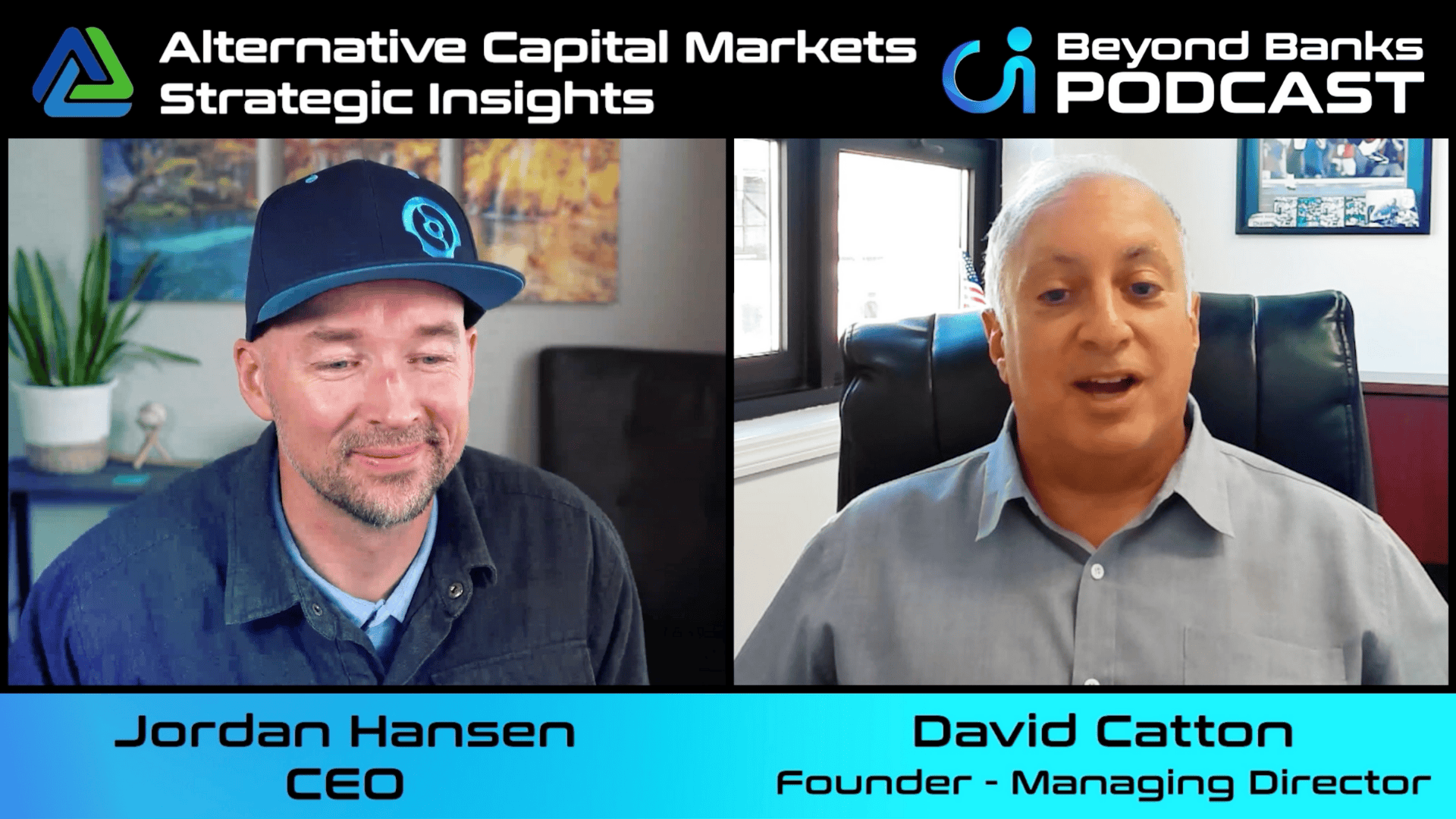
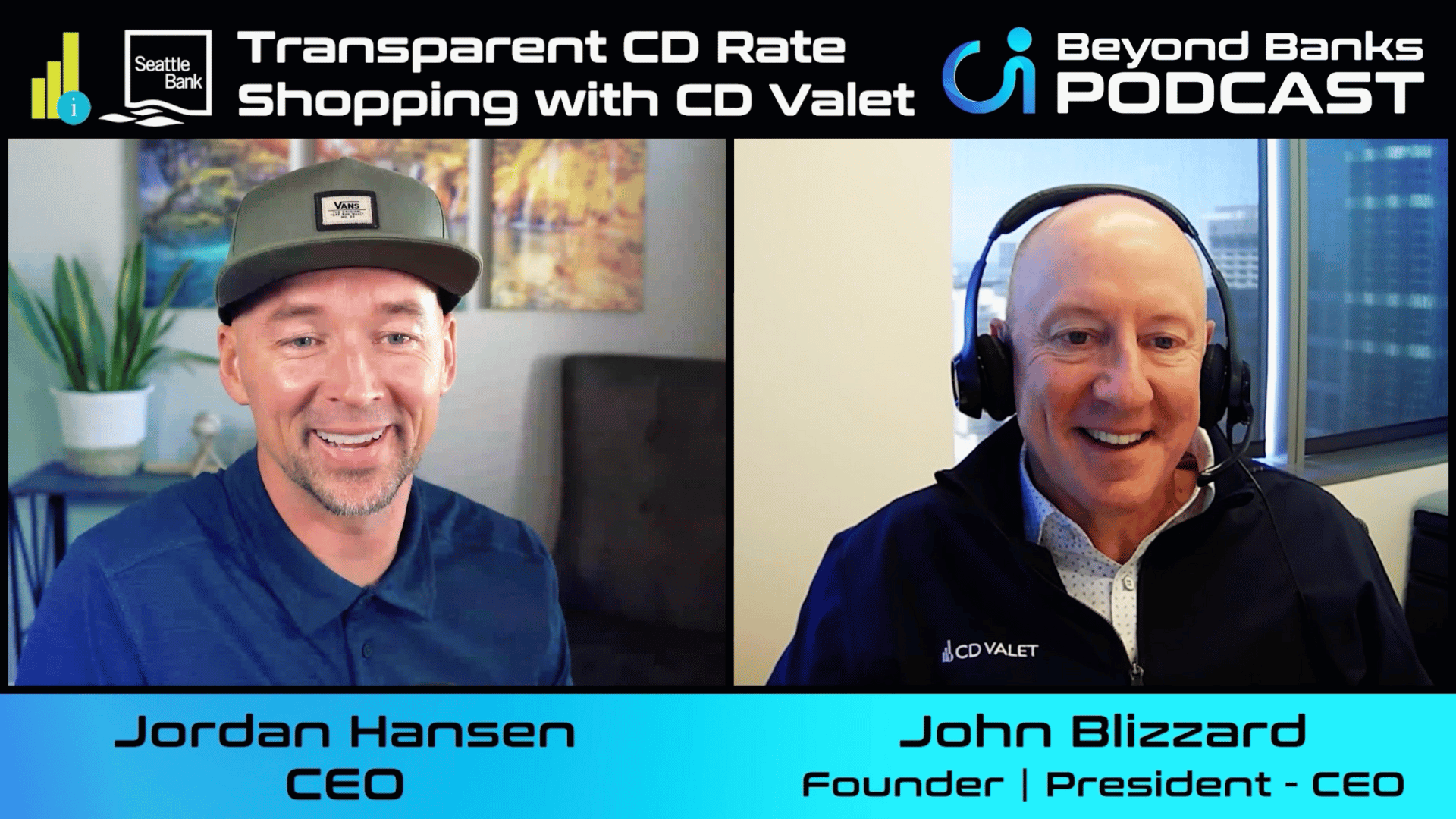


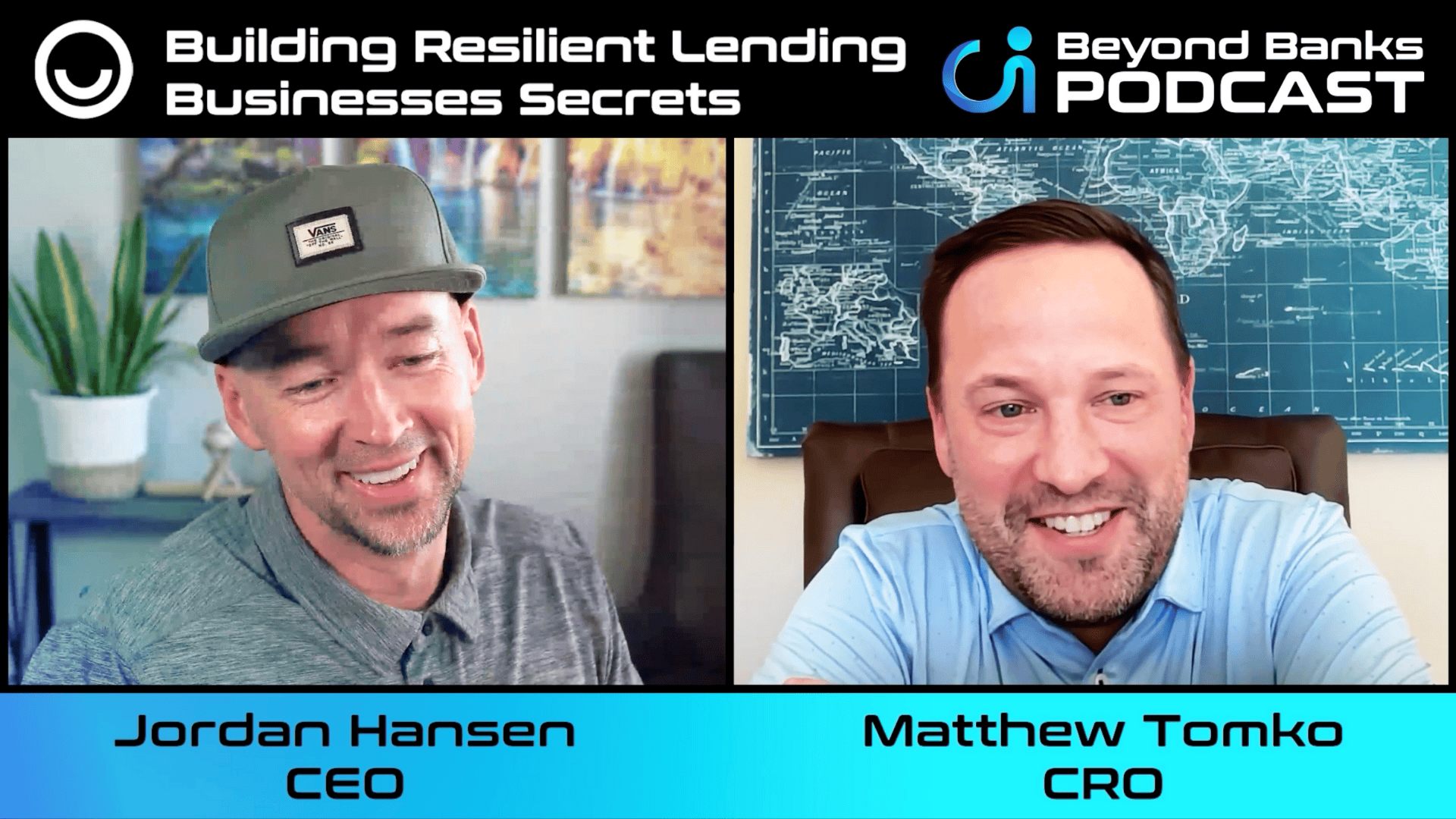

.png)
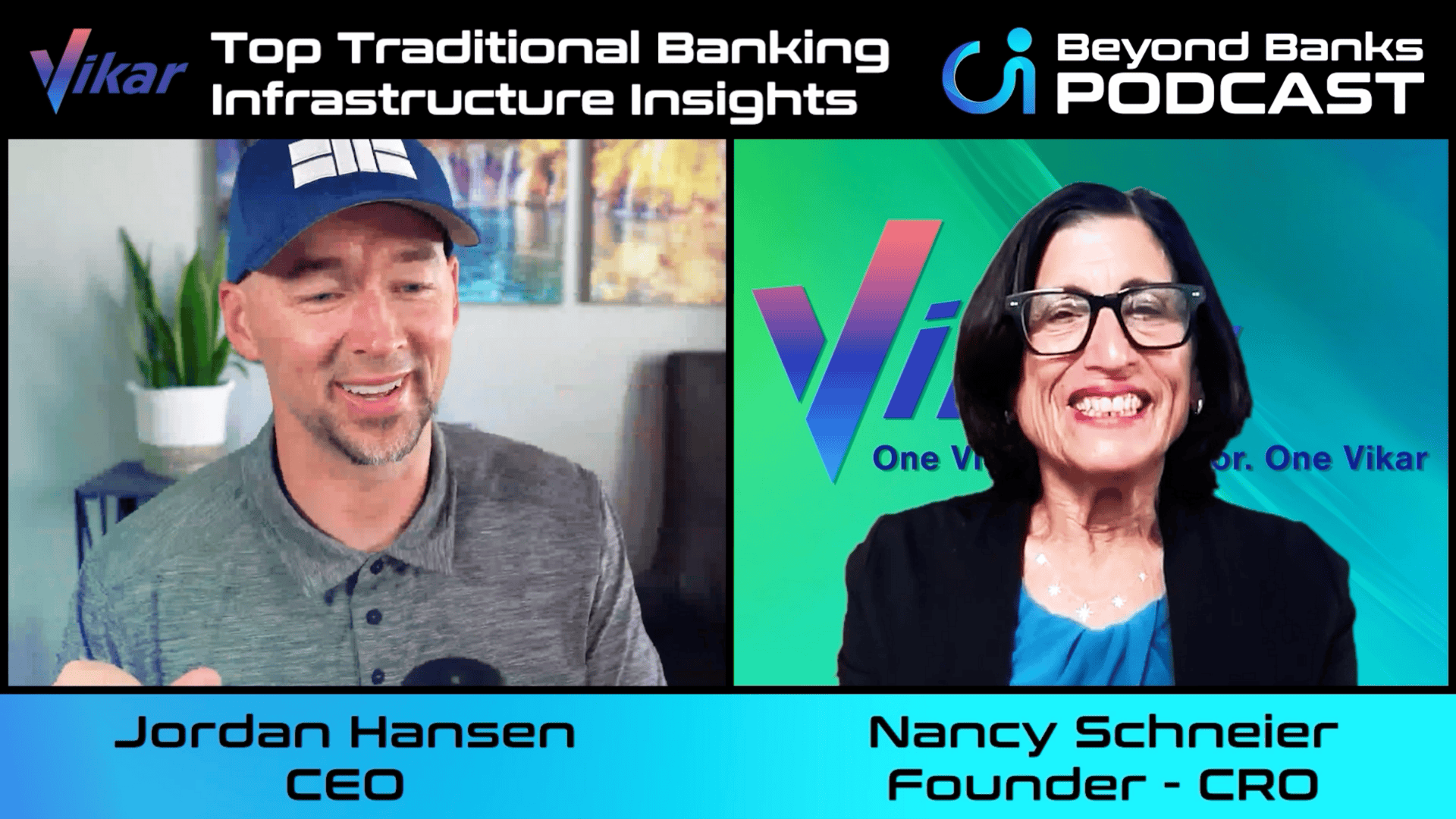
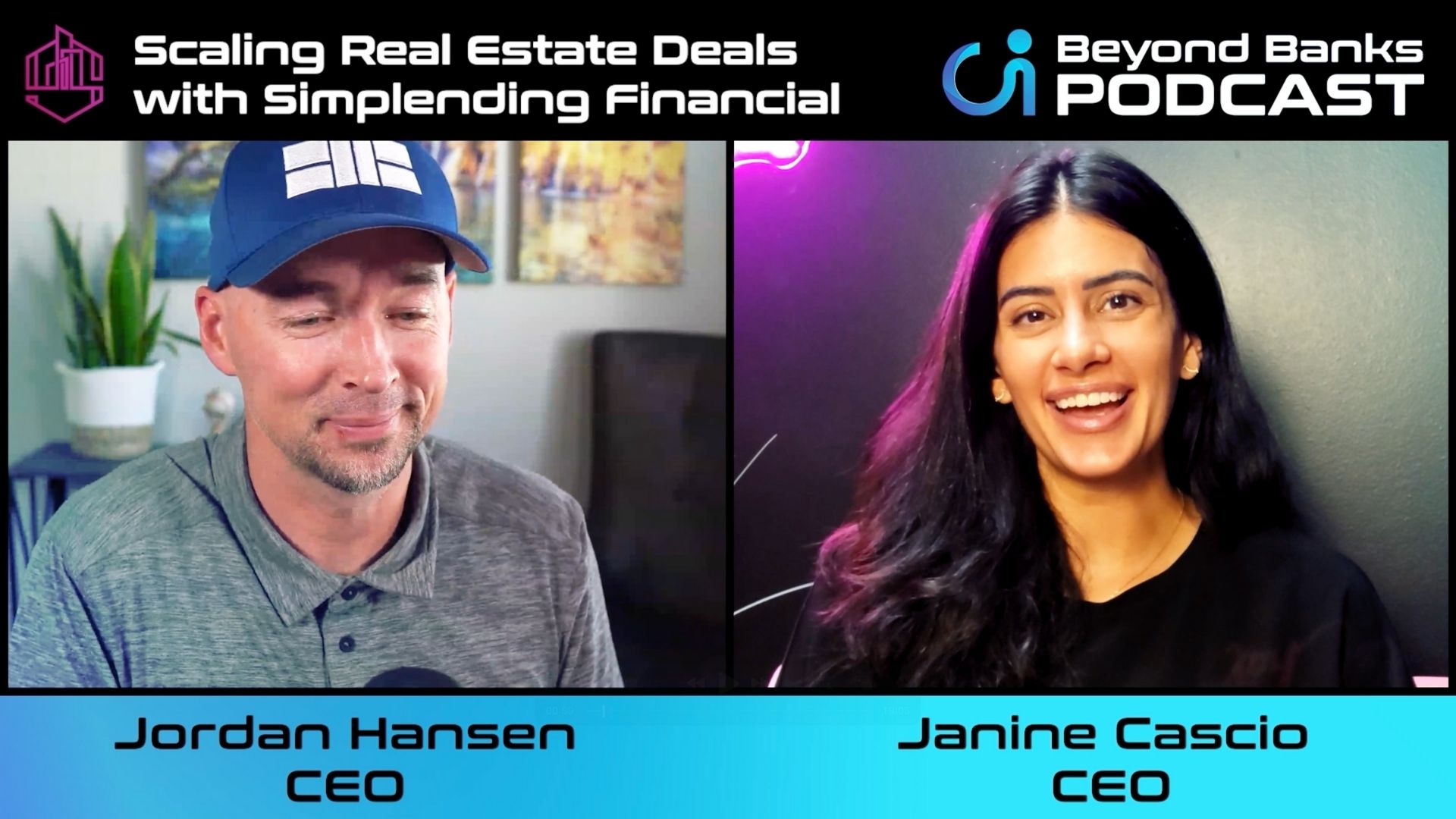
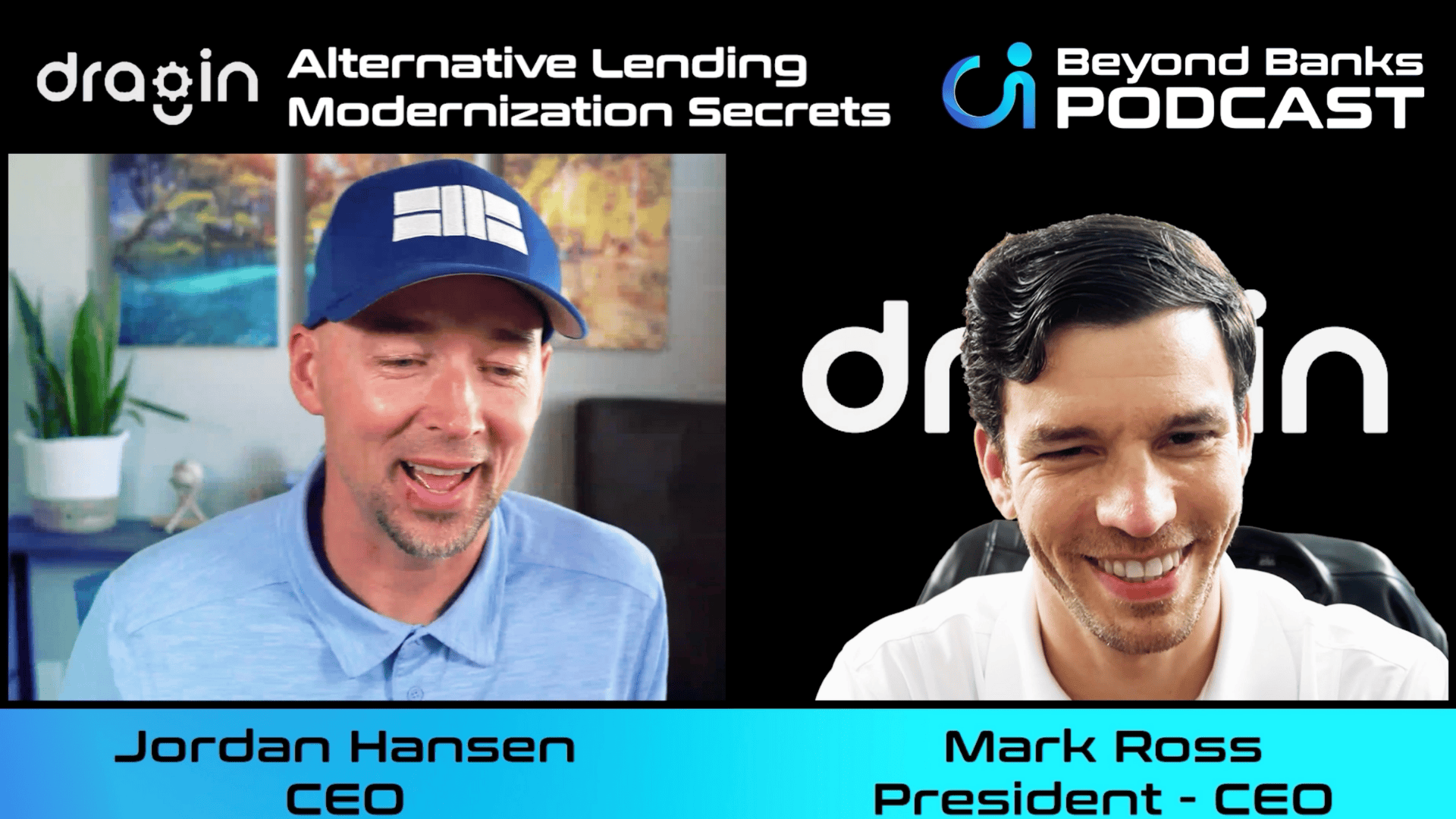
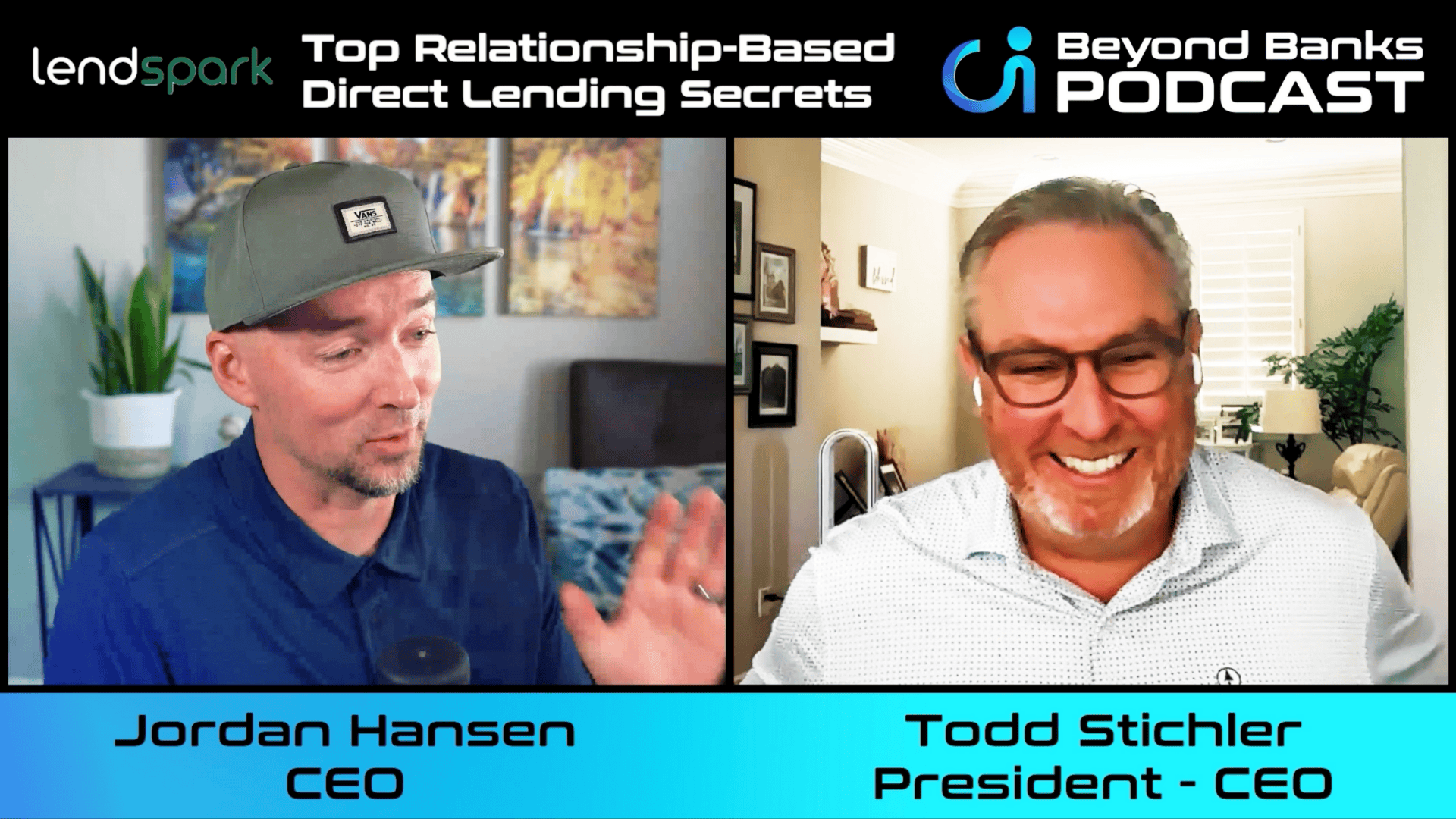
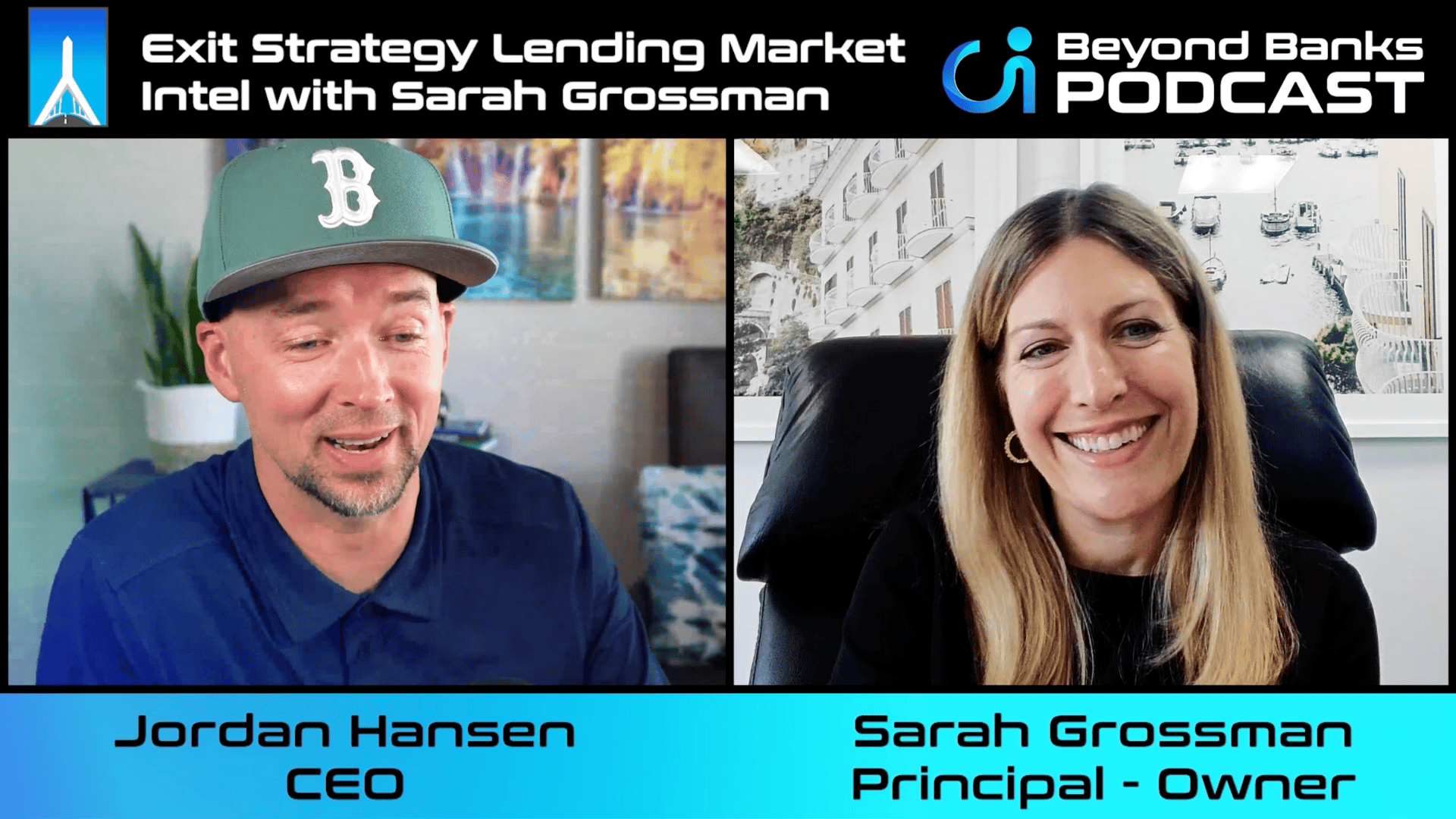
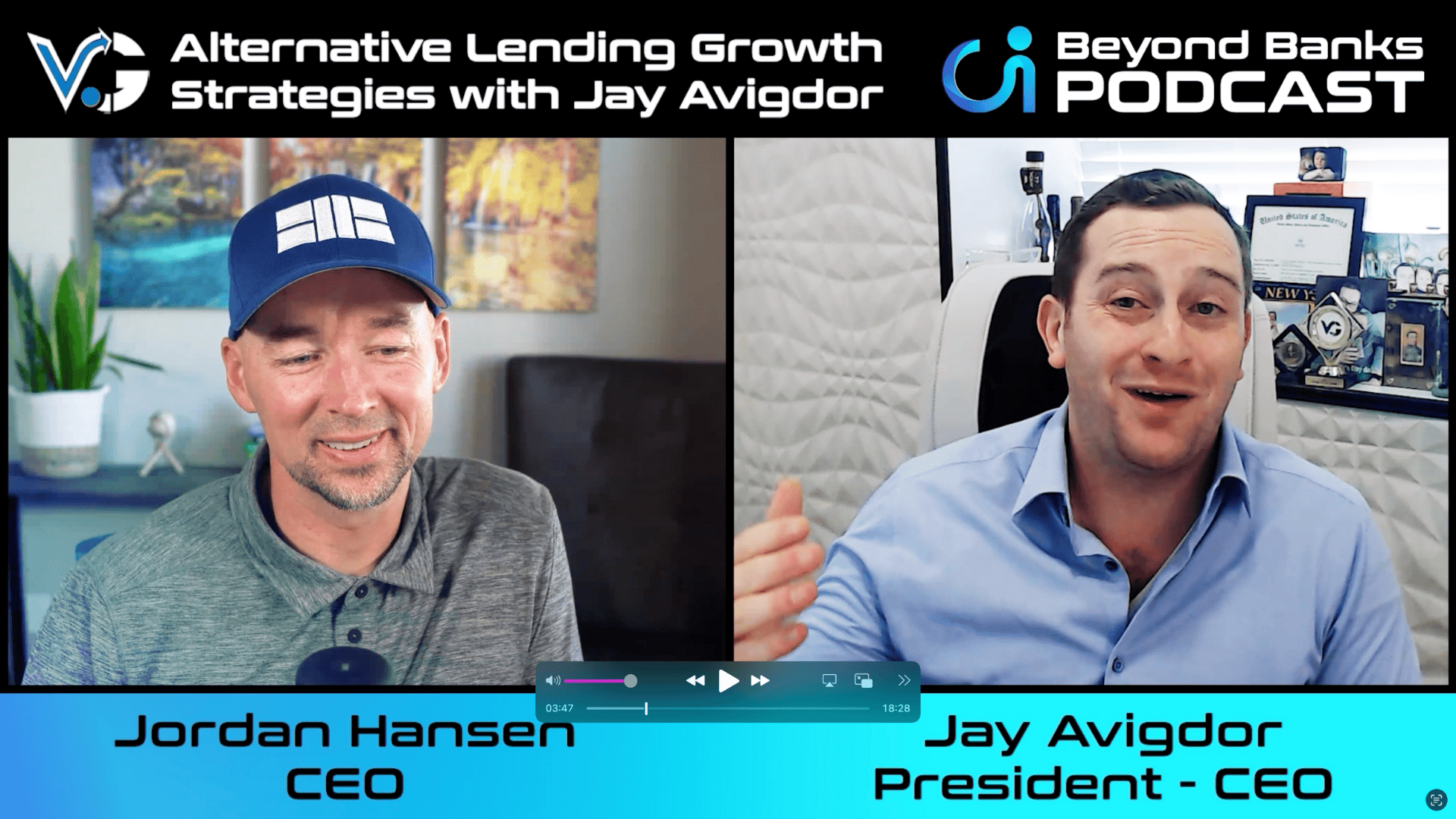
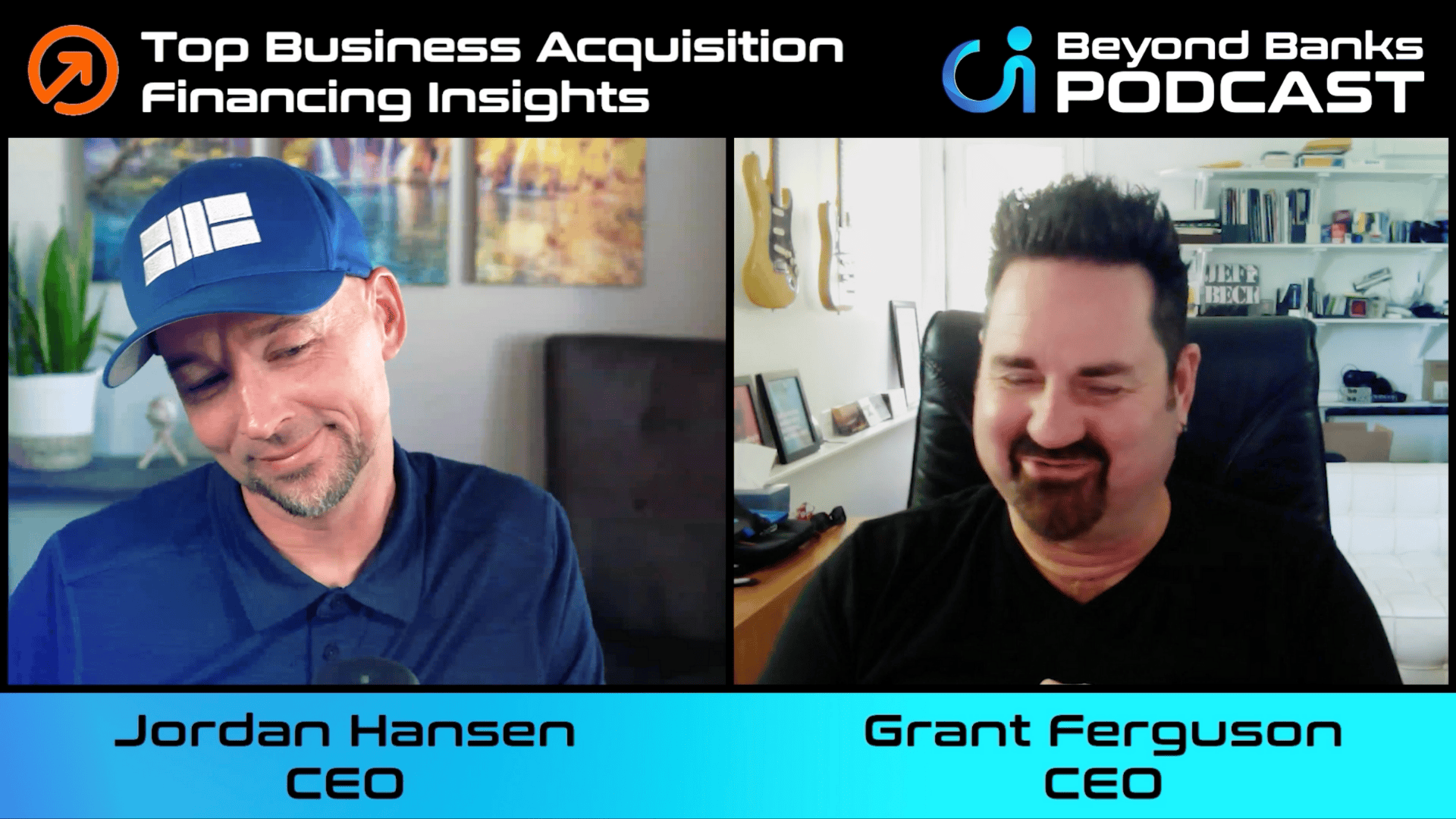
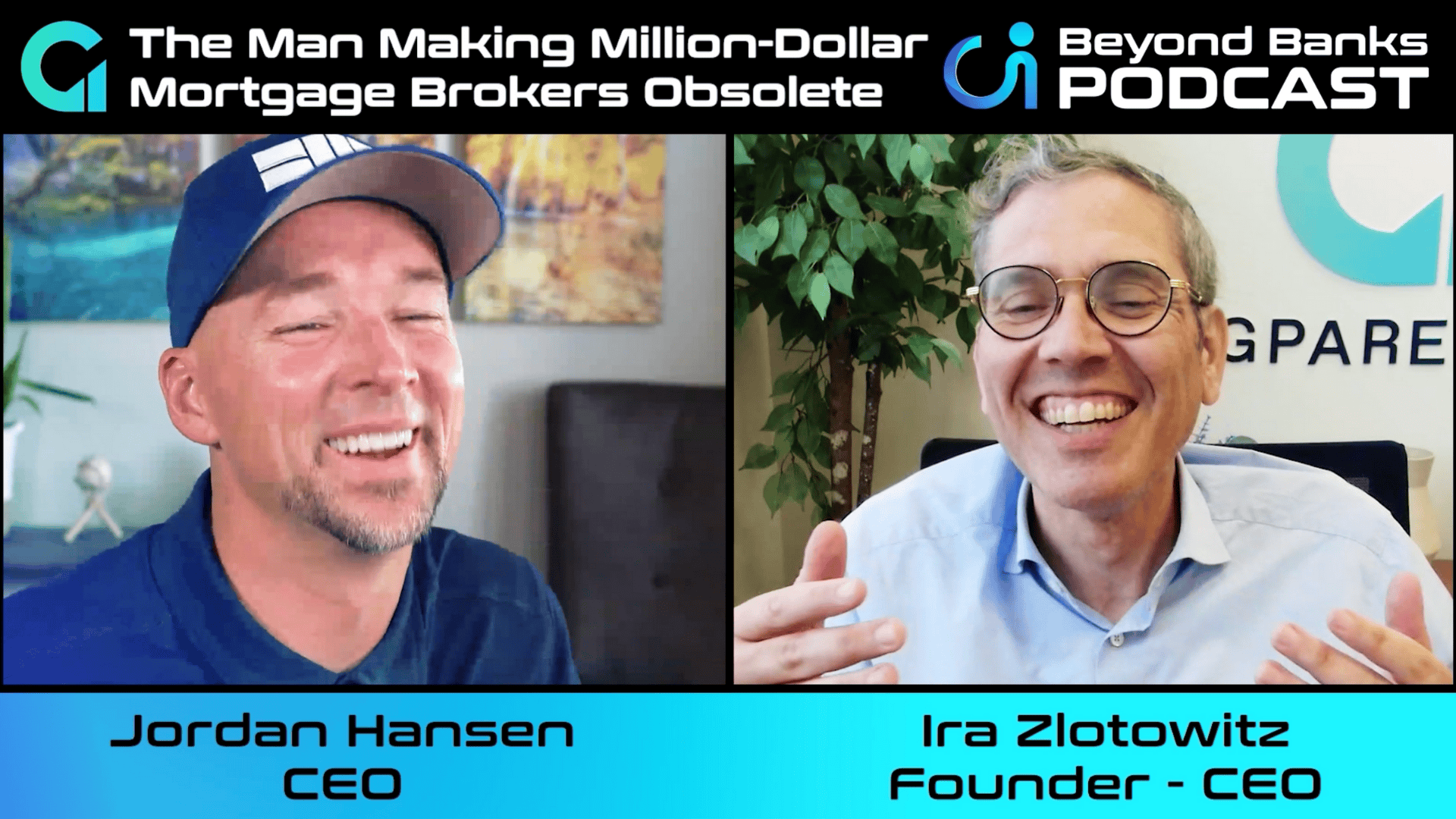
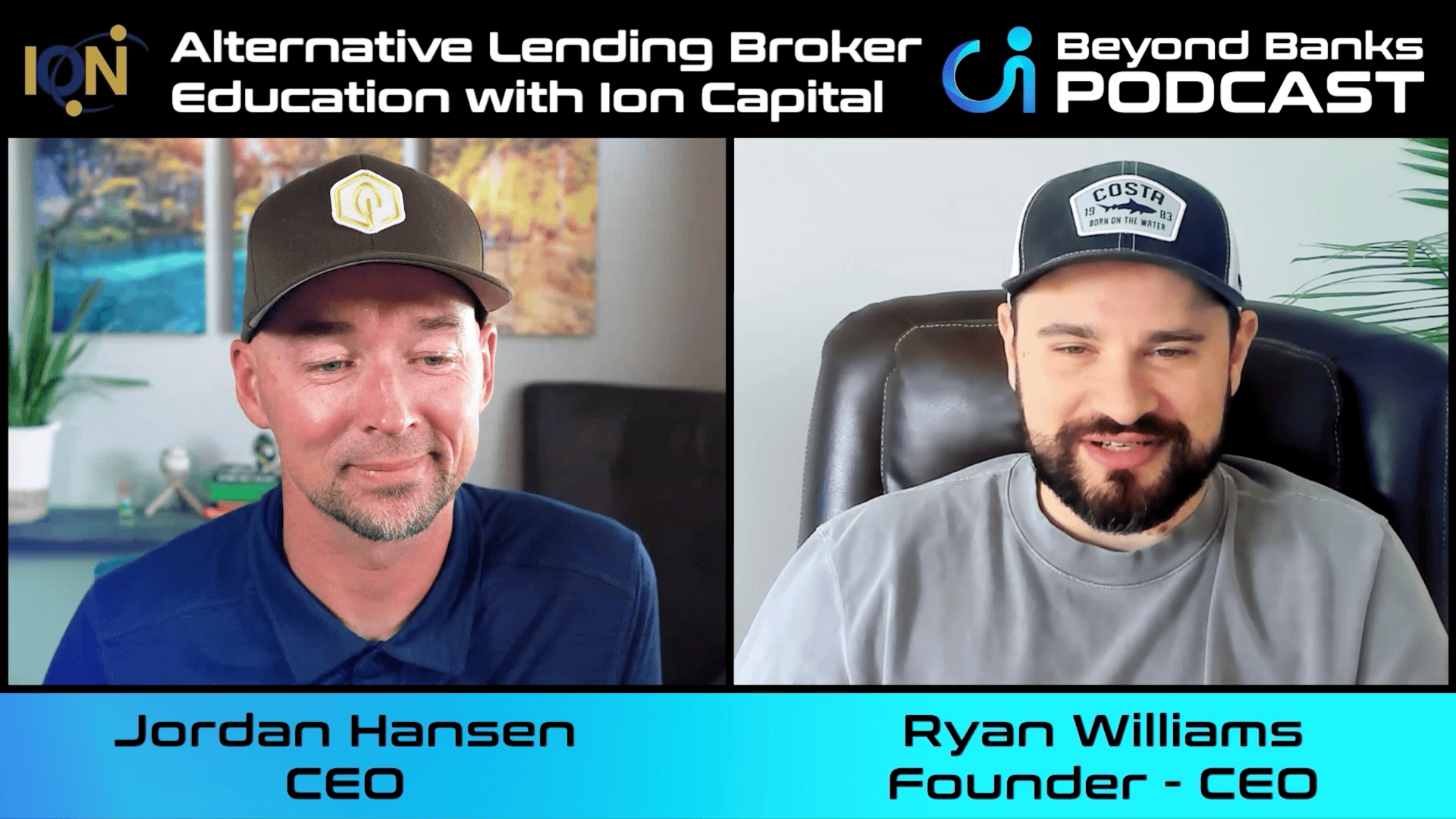
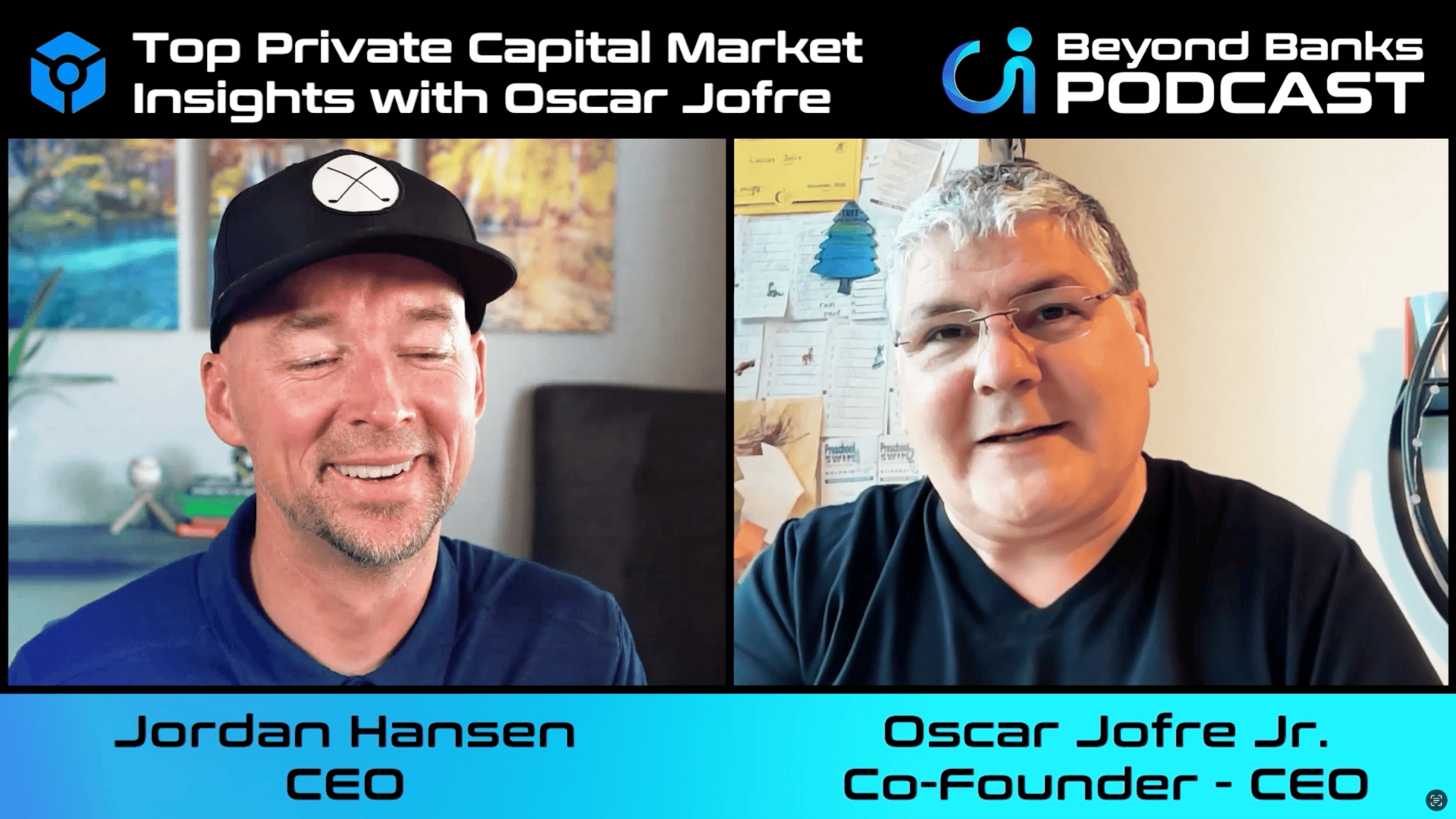

















.png)